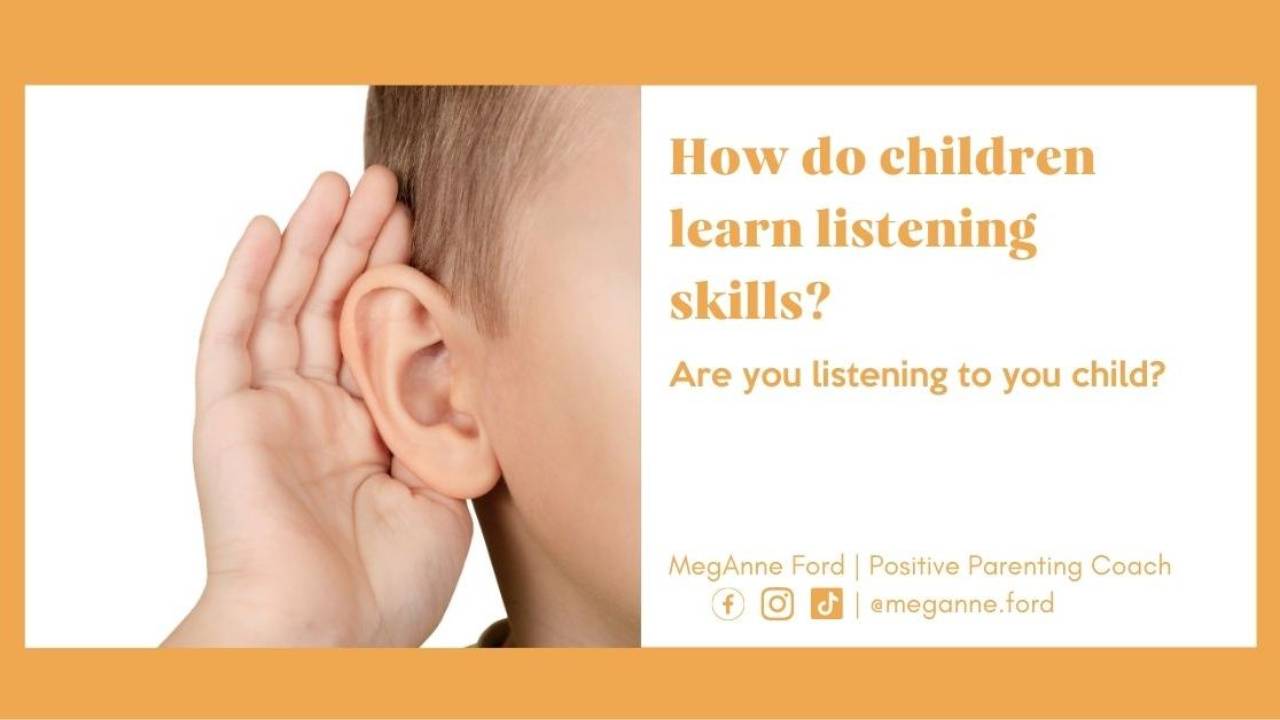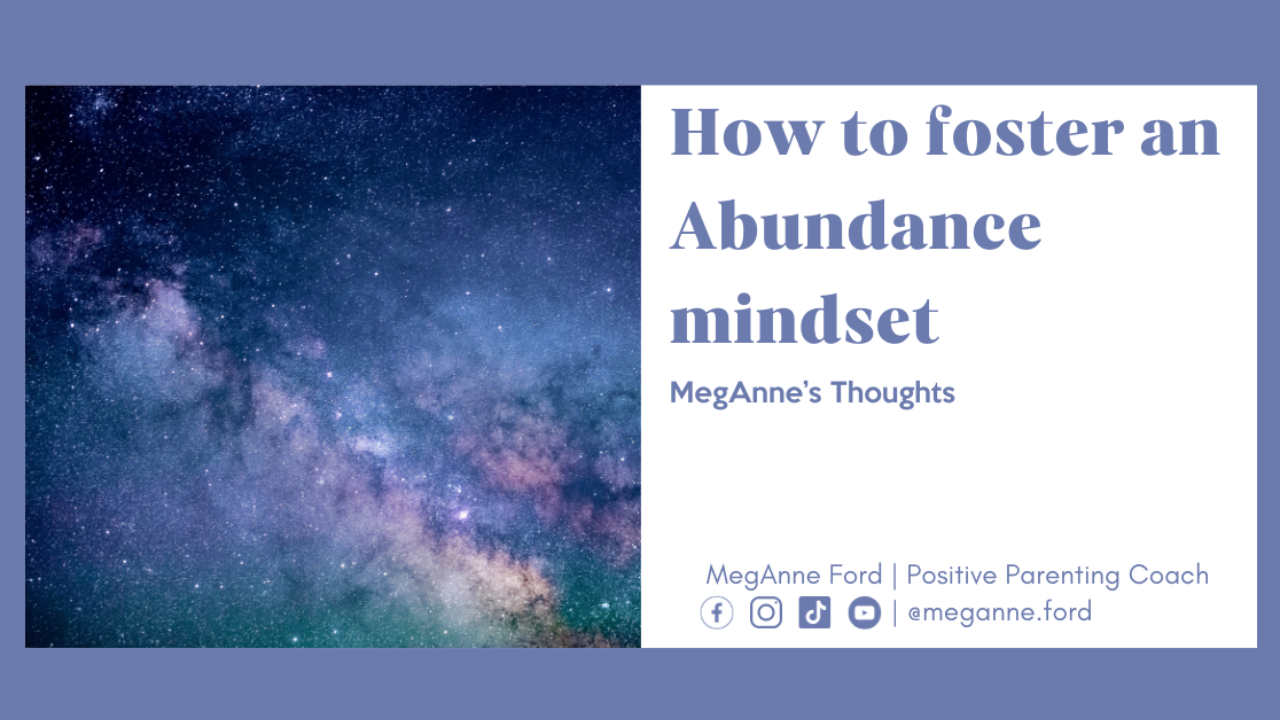
How to be a Better Parent: Common Mistakes
Nov 02, 2023
So, how do you become a better parent? After working with children and parents for nearly 20 years, there is a common belief that mistakes are bad. When we think they are bad, we feel like bad people for making them or even bad parents. What if we begin to look at mistakes as something good?
When was the last time you made a mistake and thought, “YES! INNOVATION TIME!?”
Well, if you’re like most parents, probably never. It’s probably something you HATE making, so instead of taking this as an opportunity to lean in and listen, you most likely try to rush through the process to get back to feeling “good and happy.” But what if we began to see mistakes as good things? As opportunities to learn, not as vulnerabilities to be shamed.
Now, I get it. Being scared to make mistakes is a very primal belief. Many centuries ago, before modern technologies and innovations- mistakes could mean you were killed. So, we grew into a society that believes that to stay connected, we must hide our mistakes and only show the pretty parts.
I often see this on social media. I, too, am guilty of it. I know that it doesn’t come naturally to me to show up in a moment of vulnerability and make a mistake publicly. It is difficult. BUT! When we do, true magic happens. We begin to connect on a deeper level. It becomes like a superpower. Instead of fearing the mistakes, we look to learn and improve from them!
I like to think about mistakes as potholes in the road. I live in downtown Richmond, and I come across many potholes. So, the first time I hit one, I might be surprised! “WOW! What was that?!” And I take note of where it is on the road. The next time I’m driving in that same spot, I begin to become hyper-sensitive to the memory of the pothole and will work to avoid it. But here’s the thing, it doesn’t truly get fixed, until it gets filled.
We can avoid it all we want- driving over it, around it, even taking alternate routes- but the pothole will persist until someone takes the time to investigate it, clean it, and patch it. This is the same for the mistakes in our life- we must become aware, slow down, and work to learn from them- not just work to avoid them.
So let’s take this mindset belief to the three most common mistakes I see MOST great parents make while raising their strong-willed children. That might cause long-term consequences. We’re going to use this opportunity to become aware of a possible relationship pothole that we need to investigate and learn from- this is not a time to feel shame and yell at yourself!
1. The Fixer's Dilemma: Learning to Hold Boundaries
Mistake Number 1: Being the Fixer
Parents often fall into the trap of being the fixer, believing that shielding their children from struggles is an expression of love.
However, this approach inadvertently sends a message that only happiness is acceptable. Children, in turn, may internalize a damaging belief - "I am not capable." To navigate this pothole, parents can learn to establish boundaries, follow through on natural consequences, and empower their children to develop resilience skills.
How to Fix the Mistake: Embracing Awareness
Be Kind Coaching's pillar of Awareness is a powerful tool in addressing the fixer's dilemma. By becoming aware of the tendency to rush in and solve problems, parents can pause, reflect, and understand the deeper impact of their actions.
Through this awareness, they can gradually shift towards holding boundaries, allowing their children to experience and learn from challenges.
2. The Controller's Struggle: Building Cooperation and Trust
Mistake Number 2: Being the Controller
Some parents assert control in decision-making, using phrases like "Because I said so." The desire for an obedient child can lead to an environment devoid of negotiation and collaboration.
This can leave the child feeling unheard and rebelling against the imposed control, thinking, "I do not belong."
Parents can learn from this mistake by creating space for mistakes, focusing on connection, and fostering a two-way street relationship built on cooperation and trust.
How to Fix the Mistake: Embracing Connection
The Be Kind Coaching method of the C.L.E.A.R. serves as a guide in rectifying the controller's struggle. By emphasizing connection, parents can build trust and cooperation with their children. This involves active listening, involving children in decision-making processes, and creating a collaborative environment. As parents strengthen the connection, the need for controlling behaviors diminishes.
3. The Lonely Parent: Seeking Help and Building Community
Mistake Number 3: Being the Loner
Parents who attempt to navigate parenting in isolation may find themselves overwhelmed and feeling like failures. The belief that parenting should come naturally can lead to self-doubt.
The truth is that parenting is a practiced skill, not an innate ability. To overcome this mistake, parents can seek help, acquire new tools, and join a supportive community.
Acknowledging that parenting is a learned skill creates a foundation for growth and improvement.
How to Fix the Mistake: Embracing Education
The Be Kind Coaching pillar of Education becomes pivotal in addressing the lonely parent's challenge. Seeking help, gaining new tools, and becoming part of a supportive community all fall under the umbrella of education.
Parents can engage in online courses and connect with other parents to enhance their parenting skills. Embracing the learning process transforms isolation into a journey of growth.
You don't have to parent alone. With the support of Parent Coach MegAnne Ford, growth is possible. Reparenting yourself to become a better parent for your kids, our future generation, is possible!
The parenting journey is full of mistakes, but these missteps hold incredible potential for growth. By reframing mistakes as opportunities to learn and connecting them to the pillars of Be Kind Coaching, parents can pave the way for their children to do the same. Modeling these in your house can be very enriching, roughhousing can be a gateway to learn these skills through play.
Further Reading:
Resilience guide for parents and teachers - American Psychological Association
Responding to Children's Needs - Centres of Excellence for Children's Well-Being










